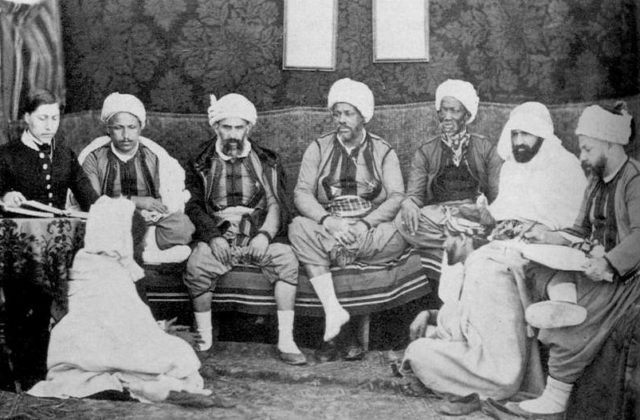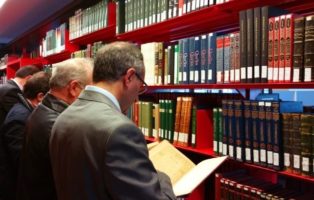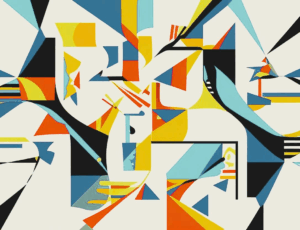About the Seminar
The history of Islam in modern North Caucasus has so far been written from a completely Russian perspective: the sources are Russian, and the methodological frameworks (empiricism) and ideological premises (colonial, and Soviet Marxist) have completely been borrowed from general Russian views. An integration of the region into a broader Islamic studies perspective, and into a post-colonial framework, had not yet taken place with rare exceptions. Local historiography is following the trends of Soviet and post-Soviet historiography. There are but few historians who are enlarging the tsarist/Soviet and post-Soviet paradigms by the Muslim perspective as reflected in local Arabic sources. How can this provincialism be broken up?
The present project and forthcoming book proposes to rethink (post)colonial narratives of the North Caucasus by taking local sources seriously, and by questioning the stereotype interpretations of the relationship between Islam and customary law. There are evidences that in the nineteenth and early twentieth centuries European officers, scholars and their Muslim collaborators shared the knowledge of Islam and its transformation in competing colonial empires. Where did the Russian get their knowledge from, and how did they use this knowledge when writing authoritatively on the North Caucasus? In addition, how can Caucasus studies be compared with the new imperial history of British India, French Algeria, and the Dutch East Indies? In all four cases colonial rule was confronted with Islamic resistance movements, and European Orientalists were directly called upon to produce not only interpretations but also to give advice on how to deal with these challenges. Did they interact? What did colonial historiography make out of the experience of other colonial empires? How much did Snouck Hurgronje, Cornelis van Vollenhoven and their followers know about the work of their Russian, British and French colleagues, with some of whom they was in correspondence? How did the Russian, Soviet and French, British and Dutch colonial practices differ or converge?
This study is mostly based on methods of comparative historical narrative and practice analysis. In it I examine the development of rural legal institutions, changes in criminal and land cases of Muslim villagers under the tsarist and early Soviet rule. The focus is made on issues of Islamic law (shari‘a) and customary law (‘adat). Their dichotomy is an issue that one encounters in colonial reports (and also in Islamic accounts, including from the respective anti-colonial jihad movements) from across the globe in the 19th and 20th centuries. This distinction is, I argue, a myth: in community practice, ‘adat and shari‘a were seen as two parts of the same. The Russian (post)colonial practice of displaying customary law as a distinct “non-Islamic” legal system, at the hands of the colonial officers to oppose Islam, was a colonial construct. Before the colonial encroachments, Muslim authors rightfully understood the two as part of a continuation, not in opposition; and also colonial officers in the North Caucasus were ultimately forced to understand that “customary law” had been lost in the process of thirty years of colonial wars. My seminar will offer an overview of the present state of the project, its sources, methods, contents and conceptual ambitions.
About NIAS Seminars
NIAS Seminars are aimed to stimulate scientific cross-pollination within the NIAS academic community, but seminars are open to others who are interested. Please let us know if you wish to attend.




